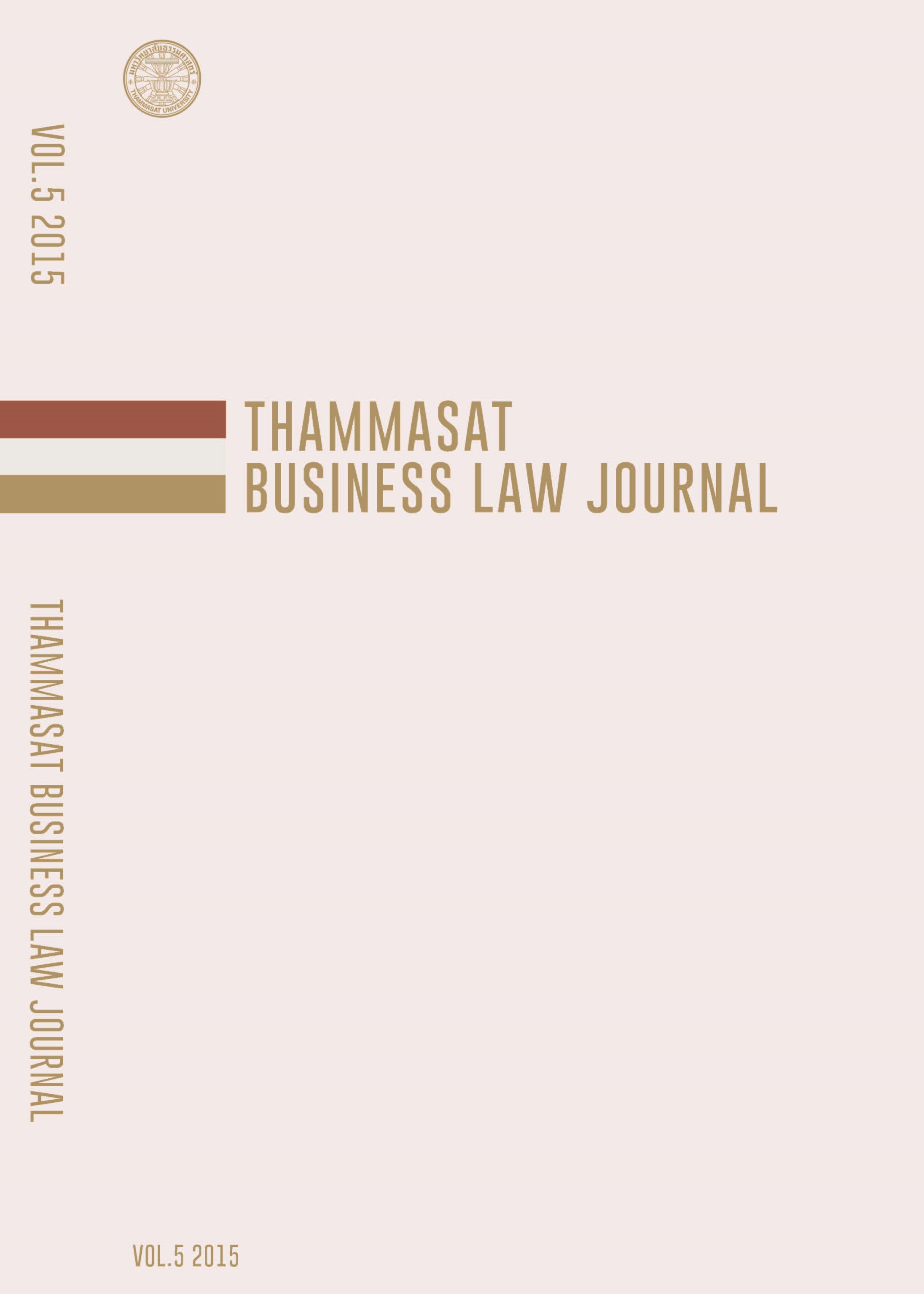ARREST OF ASSOCIATED SHIP: THE POSSIBILITY TO APPLY SOUTH AFRICAN APPROACH TO THAI LAW
Main Article Content
Abstract
The character of maritime business concerns the movement of ships which are the main asset of the debtor, the recoverability of maritime debt becomes a major problem for people engaged in maritime trade. In addition, over half of shipowning companies around the world are incorporated as “one ship company” (or “single-ship company”) by the way of spitting up the ships in fleet into each different company; this allows the shipowner to limit the liability to the value of each ship. Thai law and International Conventions regarding the arrest of ships only permit the ships under common ownership to be susceptible to arrest, thus, fail to provide insufficient measure to cope with the problem of single-ship companies.
South Africa introduced a new approach vesting the maritime creditor to apply for the arrest of the ship under the common control of the debtor notwithstanding she is registered in the name of different legal owners. This thesis, therefore, aims to study the approach of South Africa to the arrest of ship so-called associated ship as provided in the Admiralty Jurisdiction Regulation Act 105 of 1983.
This thesis will study how the associated ship arrest approach operates in order to find out the proper solutions to solve the problems of recoverability of maritime debt from the single-ship companies in Thailand.
From the study, it is found that the approach of South African successfully strikes on the said problem arising from operation of single ship companies. By allowing arrest of the ships under control of the debtor, the creditors are granted an opportunity to obtain alternative security for future litigation which is an effective tool to enforce the judgment. It also helps reducing the proliferation of single ship companies. Thus, the writer suggests that the provision of the Arrest of Ship Act B.E. 2534 be amended by adopting this associated ship approach of South African law to enable the maritime creditor in Thailand to obtain security that serve the maritime business nowadays
Article Details
References
Commentary on the 1952 and 1999 Arrest Convention. 5th ed. London: Informa Law, 2011.
Charnock, Graham Niven. “Arrest of Vessels in South Africa.” In Maritime Law Handbook: Supplement 25, edited by Christian Breitzke, Jonathan Lux, and Philomene Verlaan, by Peter Gad Naschitz. Netherlands: Kluwer Law International BV, 2005. (quote in Vincent Michael Mayerhofer, Arrest of Ships in Germany and South Africa - Comparison (2007) (unpublished M.D. thesis, University of Cape Town))
ไผทชิต เอกจริยกร. คำอธิบายกฎหมายพาณิชย์นาวี กักเรือตาพระราชบัญญัติการกักเรือ พ.ศ. 2534 อนุสัญญาระหว่างประเทศและกฎหมายของบางประเทศพร้อมวิธีปฏิบัติบางประการ. พิมพ์ครั้งที่ 1 กรุงเทพฯ: โรงพิมพ์เดือนตุลา, 2552. (Pathaichit Eakjariyakorn. Maritime Law on arrest of Seagoing Ships, International Convention and Practice. 1st ed. Bangkok: October Publishing, 2009).
ไผทชิต เอกจริยกร. กฎหมายพาณิชย์นาวี ตอน 2. พิมพ์ครั้งที่ 6 กรุงเทพฯ: วิญญูชน, 2552. (Pathaichit Eakjariyakorn. Maritime Law Part 2. 6th ed. Bangkok: Winyuchon, 2009)
Alcántara, José M. “Some Reflections over the Brussels Convention of 1952 Relating to Arrest of Sea-Going Vessels and Its Amending Process.” Georgia Journal of International and Comparative Law 26, no. 3 (1997): 551-570.
Hare, John, “Shipping Law & Admiralty Jurisdiction in South Africa.”
Wallis, Malcolm John David. “The Associated Ship and South African Admiralty Jurisdiction.”
Ph.D. thesis, KwaZulu-Natal University, 2010.


